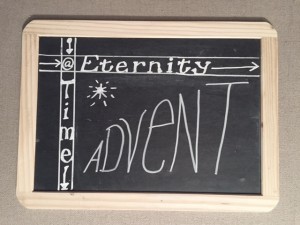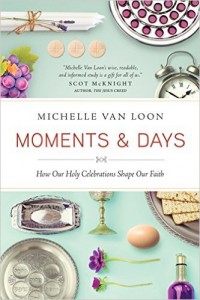The Jewish feast cycle and the Christian calendar each offer holidays that are meant to serve as an on-ramp into the intersection of time and eternity. These days of yes point us beyond our own everyday agendas and connect us with our place in a bigger, more beautiful story. If you attend a non-denominational congregation, your church may focus primarily on Christmas and Easter along with non-holiday holidays like Mother’s Day, Father’s Day and Church Picnic Day. If you attend a liturgical congregation, you’re likely familiar with the rhythms of the Church calendar, which recounts the story of Jesus’s life through a yearly cycle of observance. If you have a Jewish background or attend a Messianic congregation, you recognize the distinct cadence of the Leviticus 23 feast cycle and historical holidays of the Jewish calendar. For each one of us who loves the Scriptures and wants to get to know the Author of those Scriptures better, each holiday in the Jewish calendar and the traditional Christian calendar is an opportunity to learn – and then take that learning off the page/screen and consider how to include it in your own practice. Throughout the year, this blog will feature a 5-minute intro to each main holiday or season found in both calendars.

I am continuing
my series on these calendar days today by looking at the first movement of the Christian calendar year –
Advent. I’ll offer a bit of historical background along with some helpful resources in the “5 W’s and an H” Q & A resource I’m creating on this blog for each holiday or season in both calendars.
Who?
Advent is the beginning of the Christian worship year for the Western Church. The Western Church includes the Roman Catholic Church and almost all Protestant congregations. The Eastern (Orthodox) church observes a
time of preparation leading up to Christmas that has some kinship to Western Advent. Western Christians, which includes the majority of believers in the U.S., observe Advent as a beginning the fourth Sunday before Christmas.
What?
The focus of this season is a time in which Christ’s followers are to prepare themselves to receive God’s gift of his only son. Advent has historically been a time for fasting and repentance similar in tone to Lent, the late-winter fast leading up to Good Friday and Easter. The spiritual focus of Advent is to connect to our
need and longing for salvation as spiritual exiles.
When?
Advent was formally introduced into the liturgical calendar following the fourth century A.D. adoption of Christmas on the solar (Julian) calendar date of December 25th. Christmas was the first Christian holiday anchored in the solar calendar used throughout the Roman Empire. The spring feast cycle of Easter–Pentecos already being observed yearly was tied to the Jewish lunar calendar dating, pointing to their origins in the Jewish feasts of Passover and Shavuot.
Christmas was one of the key times during the year when new believers were baptized. (Other times included Easter and Pentecost.) Advent began as a period during which new believers received instruction about the faith so they could be baptized. During this time of preparation, some church members also fasted and prayed for these new members.
Advent eventually came to have an equally strong focus on the second coming of Christ. Church leaders recognized that the theme of spiritual readiness applied just as strongly to both the birth of the Messiah and the promise of his soon, triumphant return.
Where?
Advent shapes the worship of not only churches that use formal liturgy, but is growing in popularity among even contemporary non-denominational and Charismatic congregations. In contemporary congregations, it may be as simple as a few moments to light an Advent candle and do a related Scripture reading during corporate worship during the four Sundays before Christmas. Or Advent may be for other congregations a counter-cultural time focused on fasting, personal retreats, additional contemplation and prayer, and acts of service. Many families also mark Advent with candle-lighting, calendars, and other types of non-activity activities meant to counter the frenzy of consumer-Christmas that dominates the month of December.
Why?
Because most of what our culture does in December to celebrate Christmas disconnects us from our own spiritual poverty. Advent can reorient us to what we’re really waiting for at Christmas in a way parties, concerts, cookie baking and Santa visits usually don’t.
How?
There are many, many excellent devotional guides you can use to help you step into Advent if the practice is new to you. A couple I can commend include:
Unto Us A Child Is Born – a pocket-sized booklet, also by beloved writer Henri Nouwen, that’ll give you a brief meditation for each day of Advent.
Light Upon Light – Sarah Arthur compiled a rich volume of beautiful writing to carry you through the entire season – Advent to Epiphany.
Three other contemporary ways you can enter into the heart of the Advent wait include:
Jesse Tree – If you’re a Big Holiday Decorating person and are trying to shift your December away from Elf On A Shelf to something a little more Jesus-focused, consider trying this.
#AdventWord – Advent through Instagrammed
Visio Divina through the Worldwide Anglican Communion. I did this last year, and really enjoyed adding my own images to each day’s prompt and contemplating the way in which others from all over the world engaged.
Advent Conspiracy – Less time at the mall, more time creating meaning during this frenzied season through service and worship.
How do you observe Advent? Have there been practices or prayers that have helped reorient you during December?
















